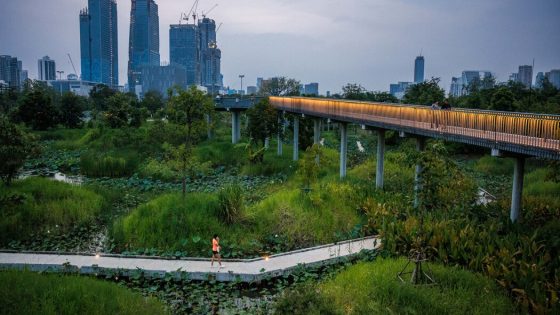Key points
- Labor is rushing to pass new laws that could put asylum seekers in jail if they refuse deportation from Australia.
- Any citizens from countries that don’t accept those deported from Australia could have visa applications barred.
- Labor is trying to pass the law in parliament before the High Court delivers another ruling on indefinite detention.
Asylum seekers who refuse to be deported could face up to five years jail under laws being rushed through parliament ahead of another High Court decision on indefinite detention.
As a result, Immigration Minister Andrew Giles will have powers to direct asylum seekers and other immigrants to “do specified things” that would facilitate their deportation.
The bill passed the lower house and was then to go before an urgent Senate committee hearing on Tuesday afternoon.
It is expected to be debated in the upper house on Wednesday and passed with opposition support.
What would change under the new laws?
Any citizens from countries that do not accept those deported from Australia could also have their visa applications barred in an attempt to incentivise diplomatic co-operation.
Giles said the government was committed to creating a “better, stronger and fairer” framework to ensure the national interest was served.
“We need these important tools to strengthen our migration system,” he said.
Asked about measures to prevent the bill infringing on international law relating to the best interests of the child, Giles said the legislation came with safeguards.
He said it was consistent with Australia’s human rights obligation and filled a loophole to deal with a small cohort of people who aren’t refugees.
The bill passed the lower house on Tuesday and is set to be debated in the Senate on Tuesday afternoon. Source: AAP / Mick Tsikas
Why are the laws being rushed through?
Labor is facing another High Court challenge as an Iranian citizen known as ASF17 makes a legal bid for freedom.
The Albanese government has tried to send him back to Iran but as a bisexual man, he could face the death penalty upon return.
If an earlier High Court ruling — which deemed indefinite detention unlawful in November — is expanded to cover people who refuse to cooperate with Australian authorities, he would be released and more refugees could be freed.
The government has been drafting legislation since Friday to try to pre-empt the court’s 17 April ruling.
“Non-co-operation with removal processes demonstrates a disregard for Australian laws,” the bill’s memorandum reads.
Race to pass laws criticised
Opposition home affairs spokesperson James Paterson said the Coalition received little more than an hour’s notice the Commonwealth intended to introduce the legislation to parliament on Tuesday.
This gives about 36 hours to pass the legislation if it is to be done before the end of the sitting week – the last before the High Court decision.
“Perhaps if it was in response to a genuine and urgent crisis that would be OK but this is an extraordinary demand to put on parliament, to put on all of us,” Paterson said.
Opposition immigration spokesperson Dan Tehan said Giles’ process had been a sham and a “complete and utter mess”, after revealing the legislation was dated to last Friday.
“One of the serious unintended consequences that we are very, very concerned about is what all this chaotic and botched approach is going to do to people smugglers,” he said.
Greens leader Adam Bandt criticised the government’s approach.
“Nothing was put forward that justifies us losing the usual rights that everyone in this parliament has to consider such important legislation,” he said.
Independent MP Zali Steggall was among those who criticised the government for trying to rush through the laws. Source: AAP / Mick Tsikas
The Greens have decried the changes as creating a “cruel and unfair immigration and asylum system”.
Warringah MP Zali Steggall said she was “deeply disappointed” Labor was trying to rush through laws without giving enough time to seriously consider the implications.
“Shame, shame on every member of government for supporting … something that is deeply, deeply undemocratic,” she said.
The government’s response is similar to the when indefinite detention was ruled illegal.
In the aftermath, about 150 immigrants were released into the community.
Some had serious criminal convictions, including for murder and rape.





